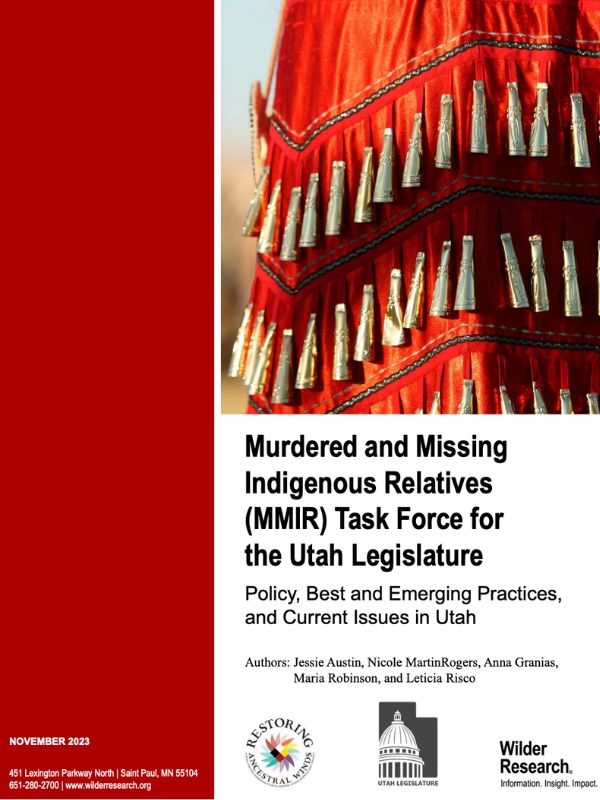
Native Americans in Utah face a disproportionately high risk of violence, murder, or disappearance, constituting over 5% of all murder victims despite making up only 1.5% of the population.
In 2020, the Utah Legislature introduced the MMIR Task Force to address the crisis and explore solutions.
At a press conference held today at the Utah State Capitol Building introducing the report, Hinkins, who co-chairs the MMIR Task Force with Romero, told reporters, “The goal is to not have this happen. We want to ensure our citizens are safe, whether on the reservation or in Salt Lake.”
The 130-page special report released today was compiled by nonprofit and evaluation research group Wilder Research, Native-led advocacy group Restoring Ancestral Winds and a retried FBI missing persons investigator.
Findings result from interviews with key informants and listening sessions with family members of MMIR victims and community members in Utah, an inspection of existing federal and state legislation, and a review of relevant research literature. The report examines the extent of the disparities driving the state’s MMIR crisis and addresses nine key issues, including:
- Reporting and initial investigation of missing person cases
- Communication and alert systems
- Review and investigation of unresolved (“cold”) cases
- Death investigation
- Jurisdiction issues and government-to-government collaboration
- Data issues
- Victim and family services
- Prevention
- Media reporting
As well, the report includes recommendations for addressing the crisis, including creating guidance and model protocols for best law enforcement missing person response policies and procedures across jurisdictions; expanding cold case resources; and increasing access to culturally appropriate victim’s services resources.
Tamra Borchardt-Slayton, Tribal Council Member of the Paiute Indian Tribe of Utah and member of the MMIR Task Force, spoke to the prevalence of the MMIR crisis in Indian Country and the lack of awareness of it outside of Native communities.
“Being a part of this has been a long ride,” Borchardt-Slayton said. “... This epidemic is something that isn’t discussed openly. It isn’t on the front page of every newspaper, and it should be.”
“We need justice for the victims and their families. There are things we deal with in our communities that aren’t often discussed and should be. We all have a story like this. I have a story like this.”
The Utah report comes on the heels of a report issued by the Not Invisible Act Commission urging the federal government to take recommended steps to combat the MMIR crisis nationwide.
More Stories Like This
Native News Weekly (August 25, 2024): D.C. BriefsUS Presidents in Their Own Words Concerning American Indians
Native News Weekly (December 28, 2025): D.C. Briefs
Minnesota Lt. Gov. Flanagan Draws Right-Wing Backlash After Wearing Hijab in Solidarity With Somali Community
Haaland Meets with Southern New Mexico Law Enforcement on Public Safety Priorities
Help us defend tribal sovereignty.
At Native News Online, our mission is rooted in telling the stories that strengthen sovereignty and uplift Indigenous voices — not just at year’s end, but every single day.
Because of your generosity last year, we were able to keep our reporters on the ground in tribal communities, at national gatherings and in the halls of Congress — covering the issues that matter most to Indian Country: sovereignty, culture, education, health and economic opportunity.
That support sustained us through a tough year in 2025. Now, as we look to the year ahead, we need your help right now to ensure warrior journalism remains strong — reporting that defends tribal sovereignty, amplifies Native truth, and holds power accountable.
 The stakes couldn't be higher. Your support keeps Native voices heard, Native stories told and Native sovereignty defended.
The stakes couldn't be higher. Your support keeps Native voices heard, Native stories told and Native sovereignty defended.
Stand with Warrior Journalism today.
Levi Rickert (Potawatomi), Editor & Publisher


